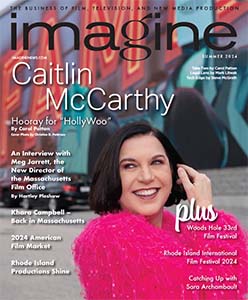1. Do you always need to create an outline? No.
2. Should you always create an outline? Yes.
3. Does an Oscar-winning writer always use one? Of course not. And always regrets it when he doesn’t.
4. Let’s ask a character question: what is it in our character, I mean yours, that we, you, want to skip the outline part of screenwriting? Don’t say laziness; that’s a lazy answer. I’ll give you Unbridled Enthusiasm; you’re so excited to get your extraordinary script written that slowing down to outline it would be counterproductive. It would be like having a map before you started out on a trip somewhere you’ve never been before. (Map = pre-GPS large document impossible to refold once opened).
5. Try it. Write something down. Such as, how you envision having the movie start.
1. A country road. Can’t beat it; country roads are highly filmic and inviting.
2. A not new Honda rattles over the potholes. See what we just did? We established that the driver isn’t rich and is in a hurry. This is where outlines can be really useful in organizing our thoughts before we get to the meat and potatoes of character description and dialogue.
3. EXT. HONDA – I’m already throwing in the EXT. thing, to assuage my Unbridled Enthusiasm, to say, we’re writing a screenplay any minute now, hang on.
3. EXT. HONDA. Why is it EXT. even though it’s INSIDE the car? Because we’re filming OUTDOORS. This is helpful to the First Assistant Director, when she or he devises a shooting schedule. Rain in the forecast? EXT. HONDA ain’t gonna happen; go to a cover set. What’s a cover set? A set undercover. Thank you; does this have something to do with our outline? Yes. It helps us see our balance of INTs and EXTs, especially if we’re shooting in New England where the weather just changed three times while I was writing this sentence. Why do you think Hollywood’s in Southern California as opposed to Seattle or Scituate? Same reason LegoLand is: more sunny days.
You see how these paragraphs keep getting fatter? It’s an outline with Treatment envy. Most of my outlines look like this, streamlined and get-to-the-point at the beginning, not so much as I go on, as I think on paper, as I work stuff out, to give me a proportionate overview of the movie’s Structure and Message. And it’s only for me anyway. But I’ll tell you this: you go into pitch sometimes, to try to seduce some producer or executive into investing in your movie, it can be advantageous to have a parting gift to leave behind. I’ve clinched a few projects by whipping out a passel of pages and saying, “I don’t know if it would be illuminating, but these are my notes.” Buyers love that; it makes them feel part of the process and shows that you know what you’re talking about and that you’re a hard worker. BTW, don’t drop a lot of f-bombs in your outline if you’re pitching to Disney or Hallmark. I tried that once. F-ed the whole thing up.
You don’t have to use numbers and letters and Roman numerals; they’re just for organization and there’s no right way to write an outline but by the time I’ve reached the end of one, typically 10 or 12 pages, sometimes more, I’ve basically written the screenplay. It won’t have every scene – I like to let the story continue to reveal itself – but it’ll have the major ones. And I’ll have a map and know where I’m going and getting there will be a lot easier. No stalling on page 20 or the Second Act. Right? I’ll have sorted all that out in my outline.
Back to it:
3. EXT. HONDA. Hank Rocha, 40ish (you can never go wrong with 40ish. Younger actors will think, I can play 40, thanks for honoring my maturity and sophistication, and older ones will think, I can still play 40, thanks for seeing that. Throw in Ruggedly Handsome and they’ll line up), drives the way he lives, too fast to see the sights flying by. Did you hear that, what a mouthful that says? I can afford to do that in an outline, to experiment and explore, to say things the script may not need or have room for. And, before I know it, Hank starts to come alive and, in no time, he’s talking to me.
Hank: F-word you! Traitor.
Not me, he’s not saying it to me; he’s saying it to another driver or a pothole, but I’m hearing his voice. And bits of dialogue start to find their way in and action, too, and set descriptions and every paragraph gets longer. Then my little outline has become what is known as a Scriptment. I didn’t make that up but I wish I had. A hybrid, a screenplay champing to be born. Try it. Outline your story.
Or ours, BEAUTIFUL WOMEN.
7. EXT. MEADOW. Rain, remember? Dying mother and wayward son in the rain. See above – New England. Margorie stares at Hank expectantly, tired but, with the last of her strength, smiles at him. Never more beautiful.
15. INT. CHURCH. Hank and Kelsey sit across from the casket as Father William drones on. Kelsey is lovely in her stylish dress but it’s a hollow beauty and when she reaches for Hank’s hand, he doesn’t respond and she knows. And we know, too.
22. EXT. HANK’S house. Kelsey sits on the porch, watching Hank carry a box of books to the Honda. What they don’t say to each other says a lifetime.
Keep going. I’m going for coffee, for you; I don’t drink it.
Some of you have written to me at my website, ErnestThompson.us and that’s cool. Thanks for the ideas; keep ‘em coming. Next month we’ll talk about Dialogue and why it’s so hard to get right and why it doesn’t have to be.
Ernest Thompson, an actor, director and the author of more than thirty screenplays, including the classic ON GOLDEN POND, for which he won an Oscar, a Golden Globe and a Writers Guild Award, offers private coaching and script analysis (ad page 21), weekend workshops at his farm in New Hampshire, and also teaches advanced acting classes in Boston and elsewhere. For more information, visit
www.ErnestThomps





